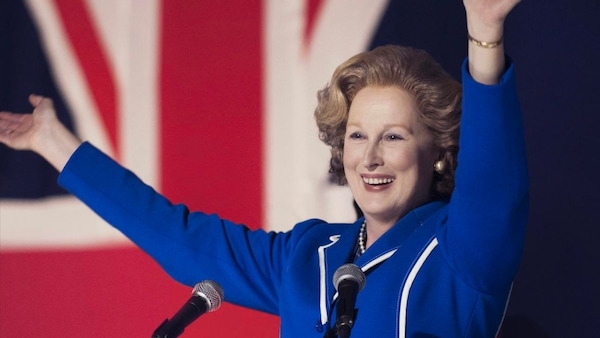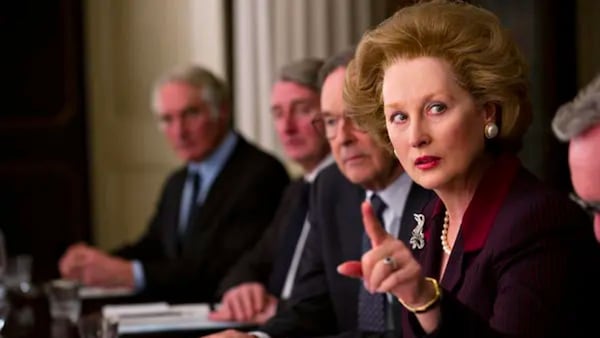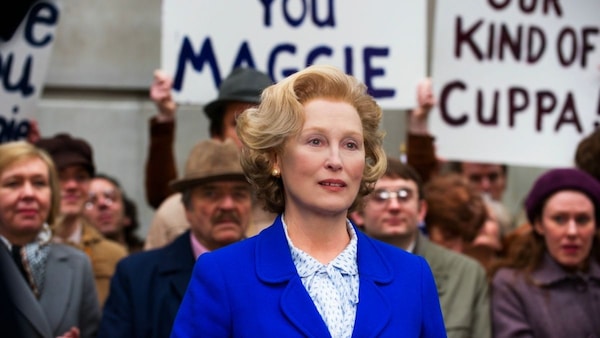The Iron Lady turns 10: Meryl Streep’s compelling acting anchored the Margaret Thatcher biographical
Meryl Streep’s Oscar-winning performance in The Iron Lady was a testament to her keen hold over her craft.

Last Updated: 12.22 PM, Jan 10, 2022
The beauty of cinema lies in its ability to reach out without the complex afterthoughts of introspection. Phyllida Lloyd’s The Iron Lady achieves precisely that, and much more. The film is a biographical adaptation of the life of the late Margaret Thatcher, the longest-serving British Prime Minister and also the first female to have acquired the position in twentieth-century Britain.
It would however be extremely interesting to note Thatcher’s personal thoughts on being “the first female British Prime Minister”, a popular epithet with which she was referred to quite often by journalists and politicians alike. She was reportedly prouder of becoming the first Prime Minister with a science degree than the first female one.
The essence of Feminism which Thatcher embodied in the film had a subtle difference with the traditional methodologies which form the benchmark for defining the term ‘feminism’.
To have commandeered the highest political position for the longest duration during Europe’s most difficult scenarios was indeed commendable, but what one notices instantly (as a novelty) was the fact that it was achieved by a female in an environment primarily dominated by men. What is even more fascinating, was the fact that Thatcher never saw it as a novelty; something which needed to be particularly lauded since she belonged to the ‘fairer sex’.
Being one of the most influential as well as controversial characters in the history of British politics, Thatcher garnered extreme reactions from the people. Her contemporaries, the Opposition and the media had a rather difficult time categorising her in a definitive mould. The complete oeuvre on Thatcher delves into various aspects of her personality; as a politician, as a Prime Minister, as a world leader, but what the film deals with is entirely different.
The Iron Lady emphasises Margaret Thatcher (played by Meryl Streep and the younger version by Alexandra Roach) as a vibrant youth determined to make a change, a wife and later a mother. The sobriquet given to her by the Soviet press was used as the title of the film. The screenplay of the film, written by Abi Morgan, provides a comprehensive view into the “drama and pathos of her personal life.”

Streep performs the incredible task of portraying Thatcher, for which she was awarded the Oscar, the highest Academy Award of Hollywood. The narrative of the film is primarily through flashbacks where the audience is transported from the present (where we view an elderly Thatcher suffering from dementia) to definitive moments in her past.
She reminisces about her life as a young girl, her husband, and her children along with the turning points of her political career. Even in her reveries, she fails to differentiate between the present and the past and is seen to have hallucinations of communicating with her late husband.
The role of Denis Thatcher (played by Jim Broadbent while the younger version played by Harry Lloyd) is pivotal in Thatcher’s portrayal. The rendezvous that she has with her husband (whether in spirit or in reality), depicts the deep and profound love which both felt for each other.
One of the earliest instances in the film where we see the strong feministic streak in Thatcher was when, on Denis’s proposal for marriage, she unabashedly confessed that she refused to be the passive, compliant wife playing the role of a mere catalyst to her husband’s success; a role which was desired of women during the time. “I love you so much… but I will never be one of those women Denis- who stays silent and pretty on the arm of her husband. Or remote and alone in the kitchen doing the washing up for that matter,” says. She continues on a passionate note, “… one’s life must matter, Denis. Beyond the cooking and the cleaning and the children, one’s life must mean more than that- I cannot die washing a teacup.”
These statements clearly depict her as one who was willing to break out of the ennui and stasis which entailed the life of a ‘wife’; for that matter, a ‘woman,’ during the time. Thatcher was aware that the trajectory of her life would surpass the conventional. That is precisely why she almost forewarned a man she loved into entering a permanent relationship with her. Streep deftly captures this personality trait of being unapologetic even in her political sphere.

Many critics are of the opinion that Thatcher achieved what she did due to her middle-class background and the strong beliefs of her Methodist father. She never took anything for granted and gave importance to the concept of ‘working for betterment’. Even in the film, Streep constantly emphasised the significance of earning one’s keep.
In a particularly moving scene, Streep (as Thatcher) shares her thoughts on the citizens having to pay taxes. “… If you pay nothing, you care nothing…. You haven’t had to fight hard for anything. It’s all been given to you- and you feel guilty about it! Well, may I say, on behalf of all those who have had to fight their way up (and who don’t feel guilty about it) we resent those slackers who take, take, take, and contribute nothing to the community!”
Streep’s portrayal of a woman who strongly disproved the concept of concessions was on-point. Her conviction as The Iron Lady was reflective in the strong stances that Thatcher took in her political career. Stances which were were a result of the hardworking background she belonged to and her resolution to transform Britain to the same working force she believed in, in order to save the nation from dire economic crises.
Watch the film here .

